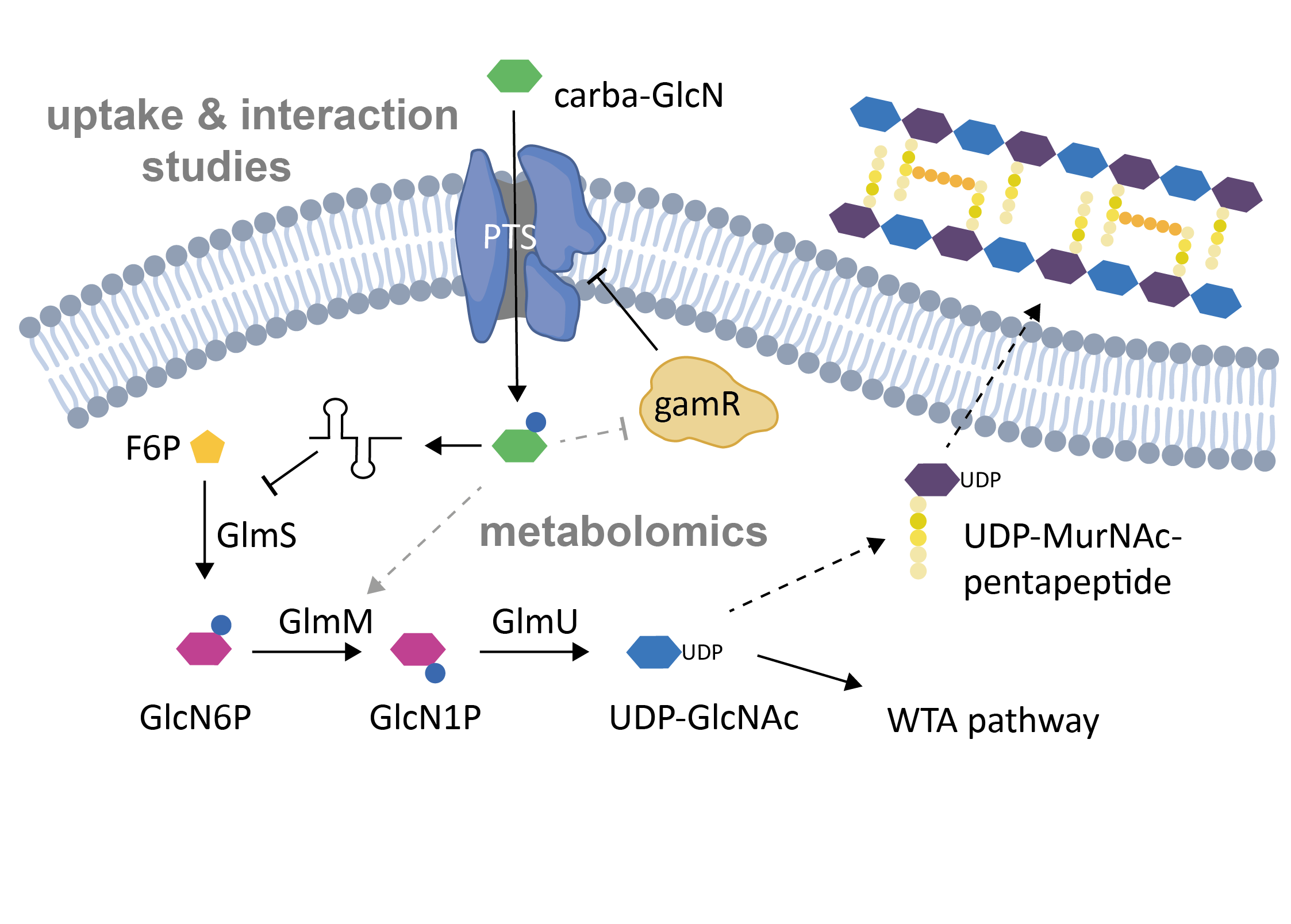Impact of carba-glucosamine on bacterial cell metabolism
The synthetic analog of the natural metabolite glucosamine, α-D-Carba-glucosamine (CGlcN), was shown to inhibit growth of the gram-positive bacteria B. subtilis and S. aureus [1]. In our work group, we study the molecular and metabolomic effect of CGlcN in these organisms. Further, we reconstituted the biosynthetic pathway in vitro using CGlcN6P as substrate and were able to find the rate-limiting step in regard of its antibiotic activity. These new insights into the fate of CGlcN will help to identify its yet unknown target.

Figure 1: CGlcN is taken up by bacterial membrane-localized transporter proteins and was previously shown to activate the GlmS riboswitch in vitro and in vivo. The hydrolysis of the GlmS mRNA is believed to perturb the synthesis of metabolites, which are involved in bacterial cell wall synthesis.
- Schuller, A., et al., Activation of the glmS Ribozyme Confers Bacterial Growth Inhibition. Chembiochem, 2017. 18(5): p. 435-440.




